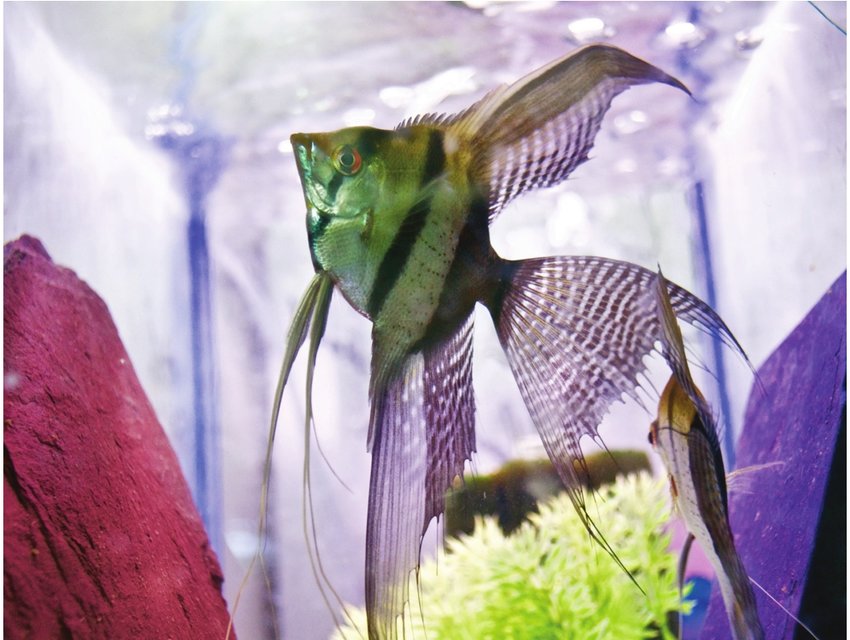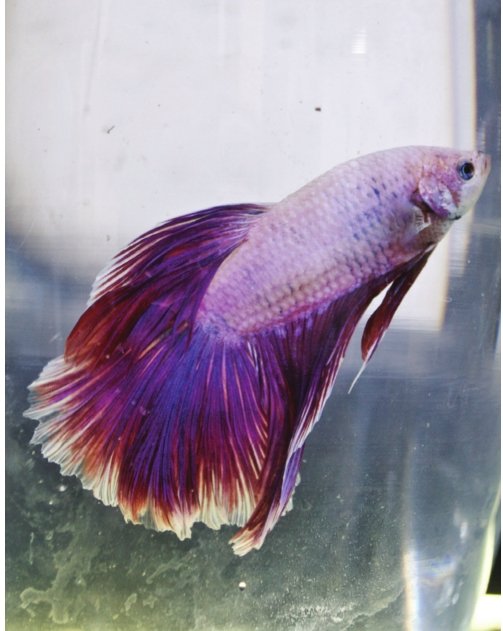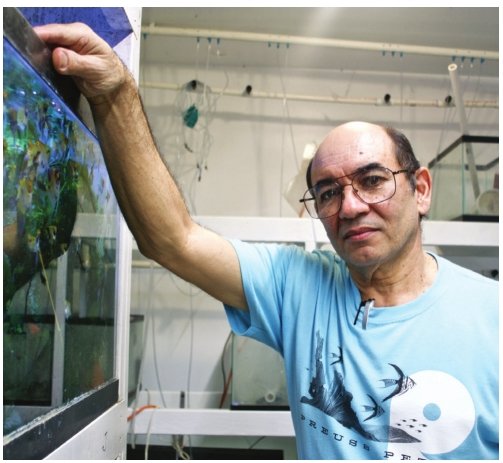
It’s almost as if Preuss Pets is a zoo instead of a pet store.
A few steps in and you’re drawn into a swirl of aquariums, terrariums and pens. But what’s particularly fascinating is what’s occupying those aquariums. Your eyes are treated to a visual feast of beautiful aquatic creatures, which very few shops can rival.
Newcomers to Preuss Pets and longtime customers alike share the same question: How do they do it? Enter Antonio Comas, the 64-year-old Cuban biologist, fish breeder and the veritable aquatic mastermind of Preuss Pets. He’s rarely seen in the storefront, instead occupying his own laboratory behind closed doors in the back.
 Comas’ passion for fish breeding is difficult to overstate. He didn’t even pause for an interview — he intently tinkered with his tanks as the conversation with City Pulse went on.
Comas’ passion for fish breeding is difficult to overstate. He didn’t even pause for an interview — he intently tinkered with his tanks as the conversation with City Pulse went on.
“I’ve been breeding fish my whole life, but during the last five years before I came to the United States, I stopped breeding as a hobby and started only producing fish for the Cuban government,” Comas said.
Comas’ Cuban home doubled as his personal breeding center, where he was able to produce the fish per his contracts with Cuban research institutes.
“At my house in Cuba I had a big back yard and a small laboratory. I produced maybe 20 different species in big amounts and intensive weight to send to the government. For example, I was paid 12 cents per angel fish,” he said.
The cheap prices he received for wholesale aside, Comas was tired of the restrictions he faced under the Cuban government.
“I hated the Communists. They keep me working there because I was the only person able to do that job,” Comas said. “I had many problems with the people in my institute, because you could not speak freely. You had to be careful with everything.”
But the soft-spoken and respectful Comas never met any problems over a disagreement.
When Comas made the move to the United States, he decided the Midwest was better for his children. He was concerned about becoming isolated in Miami’s large Cuban immigrant communities.
“I came from Cuba to Miami, then they proposed nine different states to me. We chose Michigan because my children were 13 and 15. I wanted them to learn English. If we remained in Florida, for example, their English would have stayed the same,” Comas said. “It was hard for us — no English and no family.”
Comas first came to Press Pets in 1998. Rick Preuss was in the midst of a routine day of business at his pet store. He received a phone call from a local immigration services officer about a possible candidate for employment.
“They called ahead and said, ‘Hey we’ve got someone you should take a look at,” Preuss said.
When Comas arrived with the service worker, Preuss was floored. Comas emigrated with a veterinary degree from Havana University and had years of fieldwork experience for Cuban research institutes, but he wasn’t interested in touting his credentials. He just wanted Preuss to know how much loved breeding fish.
“It wasn’t, ‘I’m boasting because I’m a veterinarian.’ It was, ‘I really love fish. I really love breeding fish. I would love to have a job here. This is my passion,’” Preuss said.
Comas brought with him to that first meeting a stack of photographs of the fish breeding operation that he was running out of his house. Preuss was more than impressed and, naturally, Comas earned the job.
His intense background in veterinary science and fish breeding proved invaluable as he found solutions to issues that had long been troublesome to Preuss Pets’ fish. Preuss had nominal experience with a microscope and was able to identify parasites on a fish’s gills, but as far as eliminating the parasite and securing a healthy fish tank, he discovered more questions than answers — meanwhile he had entire tanks dying on him.
“I tried all the remedies,” Preuss said. “And this was affecting 20 percent of our inventory.”
That particular parasite was quickly identified by Comas, who informed Preuss it was untreatable in the stage it had reached. He also pointed out that it was a parasite that lived between multiple animals — it could live between a bird, a snail and, finally, the unfortunate fish, where it reaches an insistent incurable state.
With that knowledge Preuss was able to make the necessary adjustments in his purchases, saving his fish, as well as his customer’s aquariums. Such parasites had a nasty habit of spreading to a home tank by way of an infected purchased fish.
Comas insists his pinpoint accuracy in identifying the parasite and quickness in solving an issue that had been nagging Preuss for years was no big deal.
“For me nothing is special. It’s my job to find these parasites,” Comas said.
After making a habit of blowing everybody’s expectations away, Comas was given his own space to build a new breeding laboratory.
Visiting Comas’ in-house lab — the nerve center of Preuss Pets’ brilliant fish output — is almost as overwhelming as perusing the storefront aquariums. Comas’ fish exist in several different stages of life, from near microscopic babies, young guppy-sized schools and finally full grown adults.
And none of them are plain or average. Part of Comas’ extensive breeding process leads to the creation of unique spawns of fish adorned with color palettes you’ll never see at a PetSmart.
“Your goal for the color will not always work. You need to know the background of the fish. How is it ancestors? You take note of the mother, father and cross reference that with his siblings,” Comas said.
Support City Pulse - Donate Today!
Comments
No comments on this item Please log in to comment by clicking here